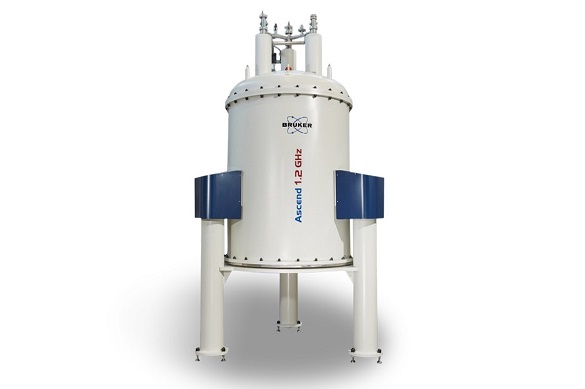£17M partnership to establish UK's most powerful NMR instrument
Published on

The University of Liverpool is part of a consortium that has been awarded £17 million to establish the most powerful Nuclear Magnetic Resonance (NMR) instrument operating at 1.2 GHz.
The consortium is led by the University of Warwick and also involves the Universities of Lancaster, Nottingham, Southampton, and St Andrews alongside Liverpool.
Funded by the UKRI Infrastructure Fund, there are only seven such machines currently operating around the world.
This NMR instrument will have the most advance capabilities to understand atomic-scale level structures and dynamics in the biological, physical and material sciences.
NMR is a key enabling technology that captures the nuclear magnetism of most atoms in the periodic table of the elements. Sensitivity, that is the strength of the NMR signal versus the noise level, and resolution, that is the ability to separate very closed NMR signals from structurally similar chemical structures, are always two critical factors in any NMR experiments. The new equipment will address these challenges and meet the needs of the UK science community.
This equipment will become the most powerful NMR system in the country adding to an existing ecosystem of NMR equipment which includes the University of Liverpool High-Field NMR Facility operating at 800 MHz. The 1.2 GHz uses a novel hybrid technology with advanced high-temperature and low-temperature superconductors to achieve the magnetic flux densities needed to reach the ultra-high magnetic field.
Professor Frédéric Blanc from the University’s Department of Chemistry, Stephenson Institute for Renewable Energy and the High-Field NMR Facility is the University of Liverpool’s Principal Investigator for the project.
He said: “The 1.2 GHz NMR equipment coming to the UK is an exciting milestone for its research community. The availability of this facility will lead the way to addressing important research challenges transforming research and impact outputs and driving innovation.”
Professor Steven Brown, from the University of Warwick's Solid State NMR Group, commented: “It is exciting that Warwick has been selected as the site for this world-class NMR instrumentation. I look forward to working with the consortium partners and the UK community to deliver this world-class resource for UK science.”
Jane Nicholson, Research Base Director at EPSRC, part of UK Research and Innovation said: “This national facility, one of only seven in the world, will advance the study of all types of molecules of various sizes that are vital to living systems. The applications will be many and varied with the potential for new insights into areas such as materials for energy applications, catalysis, pharmaceutical research, synthetic biology and antimicrobial resistance.”
The University of Liverpool has strategic capability in NMR research and leads Connect NMR UK, a nationally endorsed NMR network to maximise the impact of the UK NMR infrastructures in the physical and life sciences.
The UKRI Infrastructure Fund supports the facilities, equipment and resources that are essential for researchers and innovators to do ground-breaking work.
* Bruker 1.2 GHz NMR system © Bruker Biospin https://www.bruker.com/mr.html